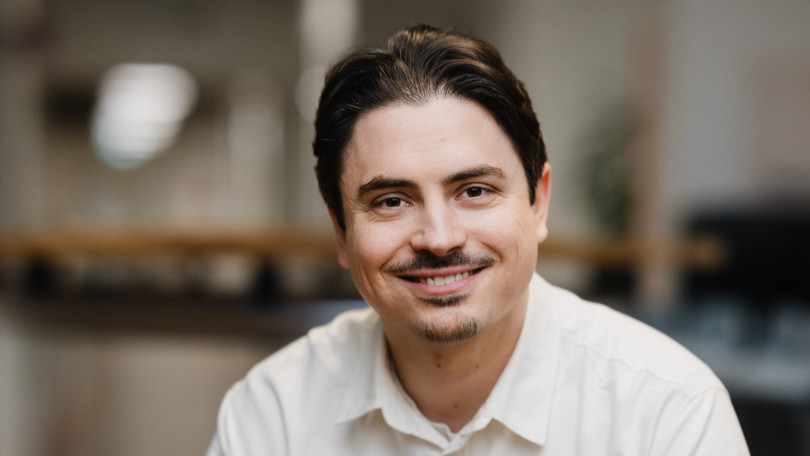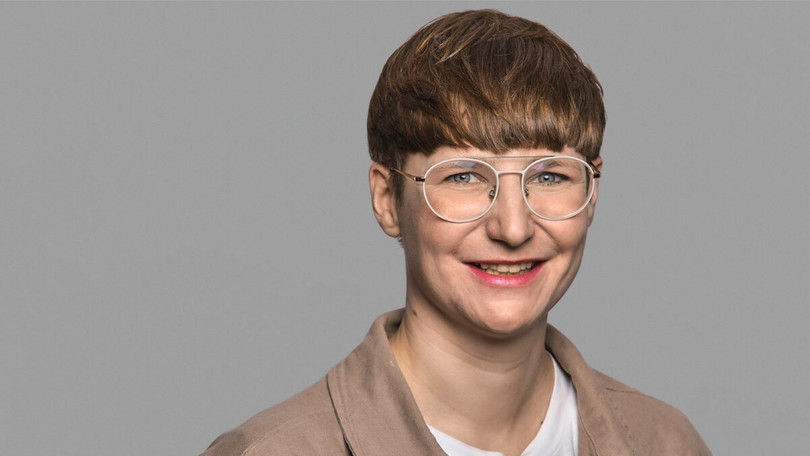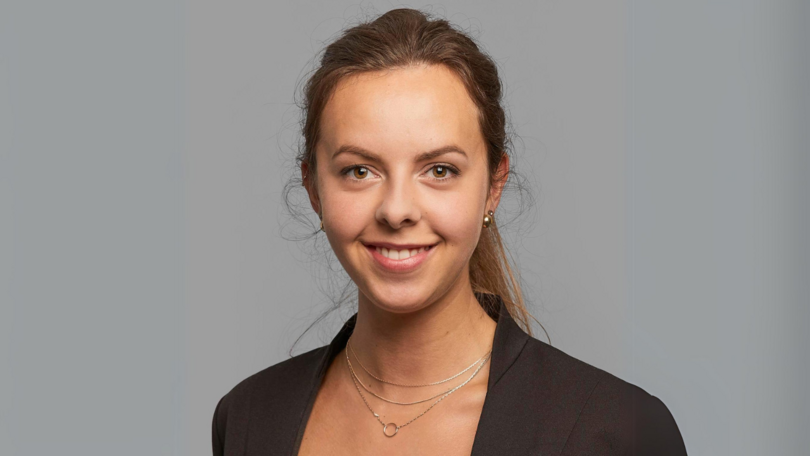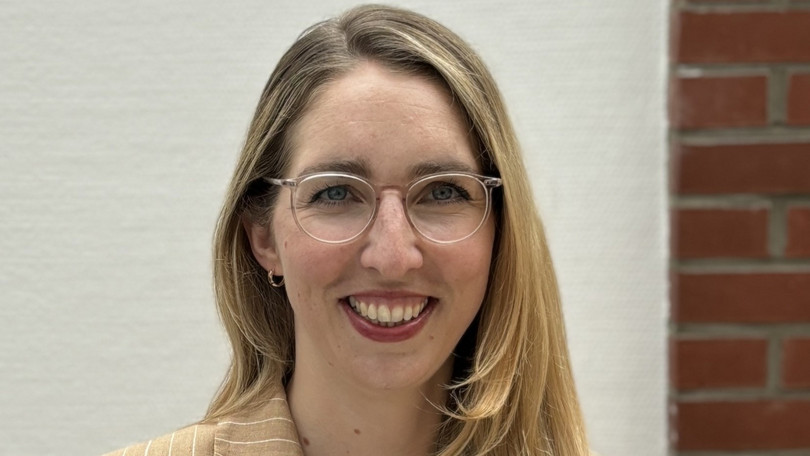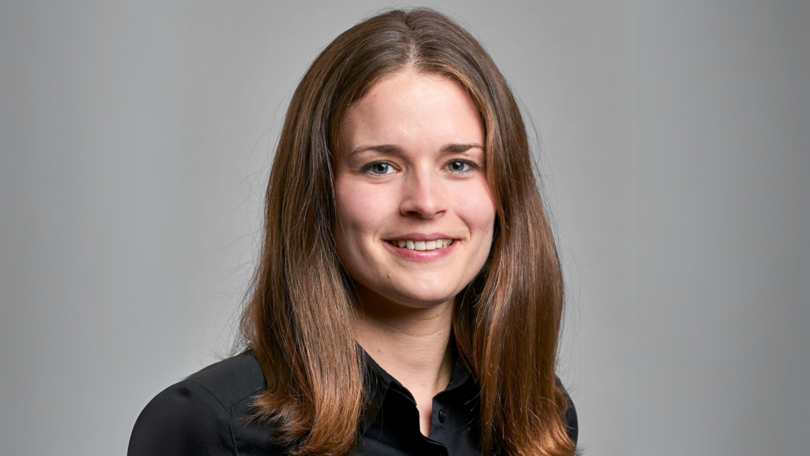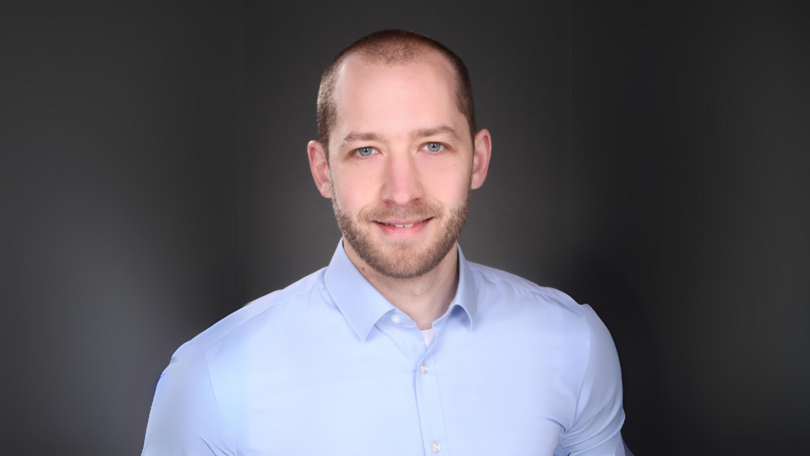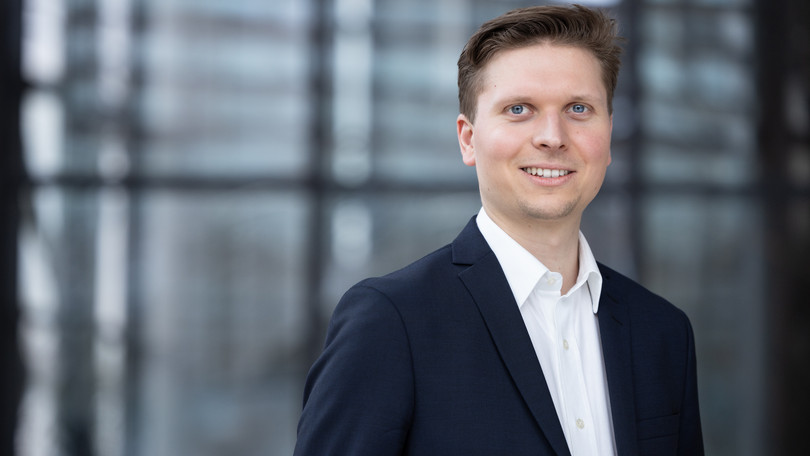Dissertation Awards
Honouring of outstanding dissertations
Leuphana University of Lüneburg confers up to five Dissertation Awards each year to honour remarkable academic achievements in the field of the doctorate. These awards recognise outstanding research work submitted and defended by doctoral candidates at one of Leuphana's five schools within one academic year. The Dissertation Awards, which are usually endowed with prize money, provide the winners with visible recognition for their future careers.
Award ceremony
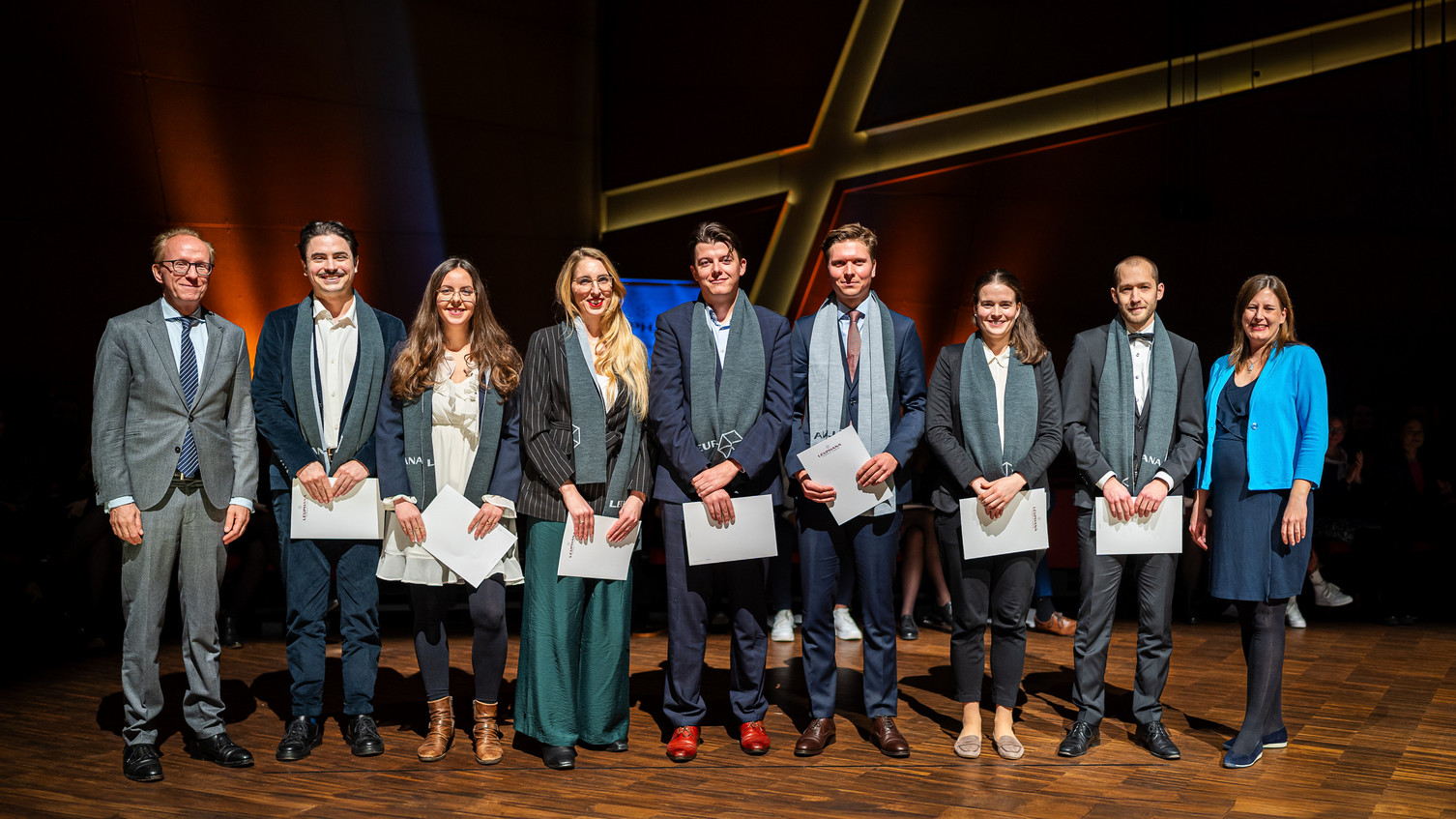 ©Leuphana/Marvin Sokolis
©Leuphana/Marvin Sokolis
The 2023 Dissertation Awards were conferred during the graduation ceremony on 25 November 2023 in the Audimax of Leuphana's central building. On this occasion, eight awards were conferred once to compensate for the corona-related postponement of the year 2022.
The award ceremony was followed by an informal get-together with representatives of the Förderkreis Leuphana Universität e.V. and the Graduate School, during which the award winners had the opportunity to give a brief thematic insight into their dissertations or research topics in a 3-minute pitch format.
Dr. Felix Kortmann
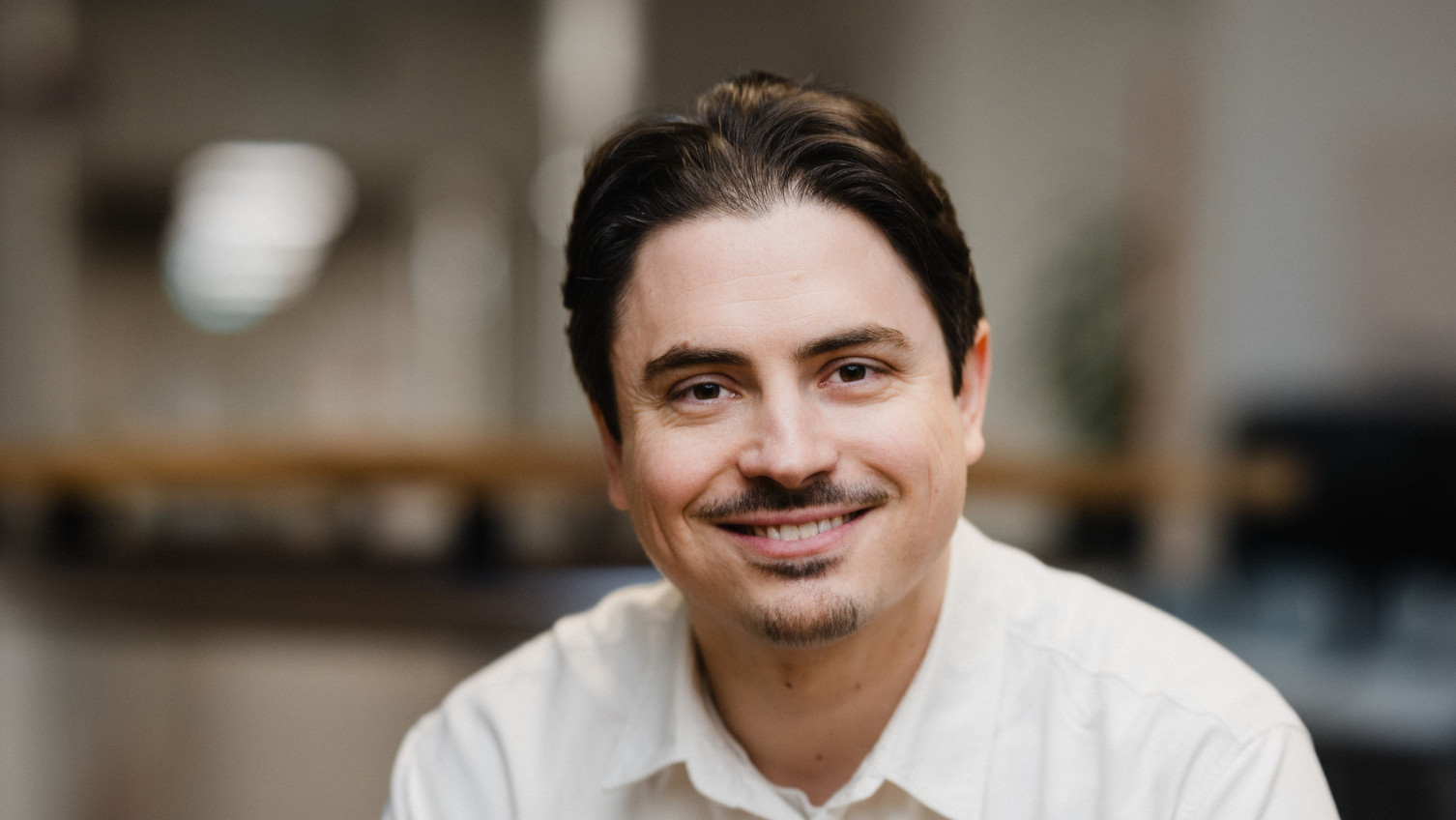 ©Dr. Felix Kortmann
©Dr. Felix Kortmann
Dr. Felix Kortmann
Leuphana University of Lüneburg confers the Leuphana Dissertation Award to Dr. Felix Kortmann for his dissertation entitled "Detecting and Assessing Road Damages for Autonomous Driving Utilizing Conventional Vehicle Sensors".
Felix Kortmann completed his doctorate at the School of Management and Technology and has made a substantial contribution to the further development of autonomous driving with his dissertation. By transferring innovative methods from the field of AI-supported image recognition to the problem of road unevenness detection, he was able to develop considerable potential for the realisation of prototypes and the further development of autonomous vehicles. With the innovative methods of his interdisciplinary doctoral project, Mr Kortmann has also attracted international attention, for example at the leading Big Data conference.
What made you decide to do a doctorate and why did you choose Leuphana?
The doctorate at Leuphana University Lüneburg enabled me to build up a great deal of professional expertise in a subject area that I find technically very exciting and to be able to make a small contribution to research - what I found particularly exciting was the global exchange and the healthy global competition in terms of research topics. In addition to the content-related challenge, I wanted to work closely with students, supervise theses and thus be able to develop personally. Leuphana University offered a great openness to cooperation with industry and a professionally oriented collaboration - in my opinion very apolitical, young and modern.
What special memories do you associate with your doctorate?
I loved the atmosphere at the Institute of Information Systems - especially the close exchange with Professor Drews and Professor Funk. Friendliness, patience and flat hierarchies are practiced here. Furthermore, there was a fruitful cooperation with the engineering sciences through Professor Heger and Dr. Meier - a joint conference trip to Montréal, which fortunately took place before the Covid-19 pandemic, stands out as a special memory.
Most recently, with the support of Professor Funk, I successfully applied for a DAAD Postdoc scholarship for a research stay at Dartmouth College in the USA; I am very grateful for this time.
What challenges did you face during your doctorate and how did you deal with them?
In addition to understandable and productive criticism from scientific reviews, there is also criticism that is not comprehensible. Dealing with this was a major challenge for me, as so much depends on the reviews during the doctoral period. Finally, of course, the Covid-19 pandemic at the end of the doctoral period was a challenge, and unfortunately, I learned that online conferences are not an adequate substitute format for on-site conferences. Compared to the cuts for pupils and students, however, I don't want to overstate this.
What advice or tips would you give new doctoral candidates?
1. Choose the right topic, it will stay with you for a long time.
2. Don't just submit perfect papers - you will also gain experience with a “Research in Progress” paper.
3. Don't underestimate the test presentation for the defence, because it is usually a flop, as it was for me.
Dr. Liza Mattutat
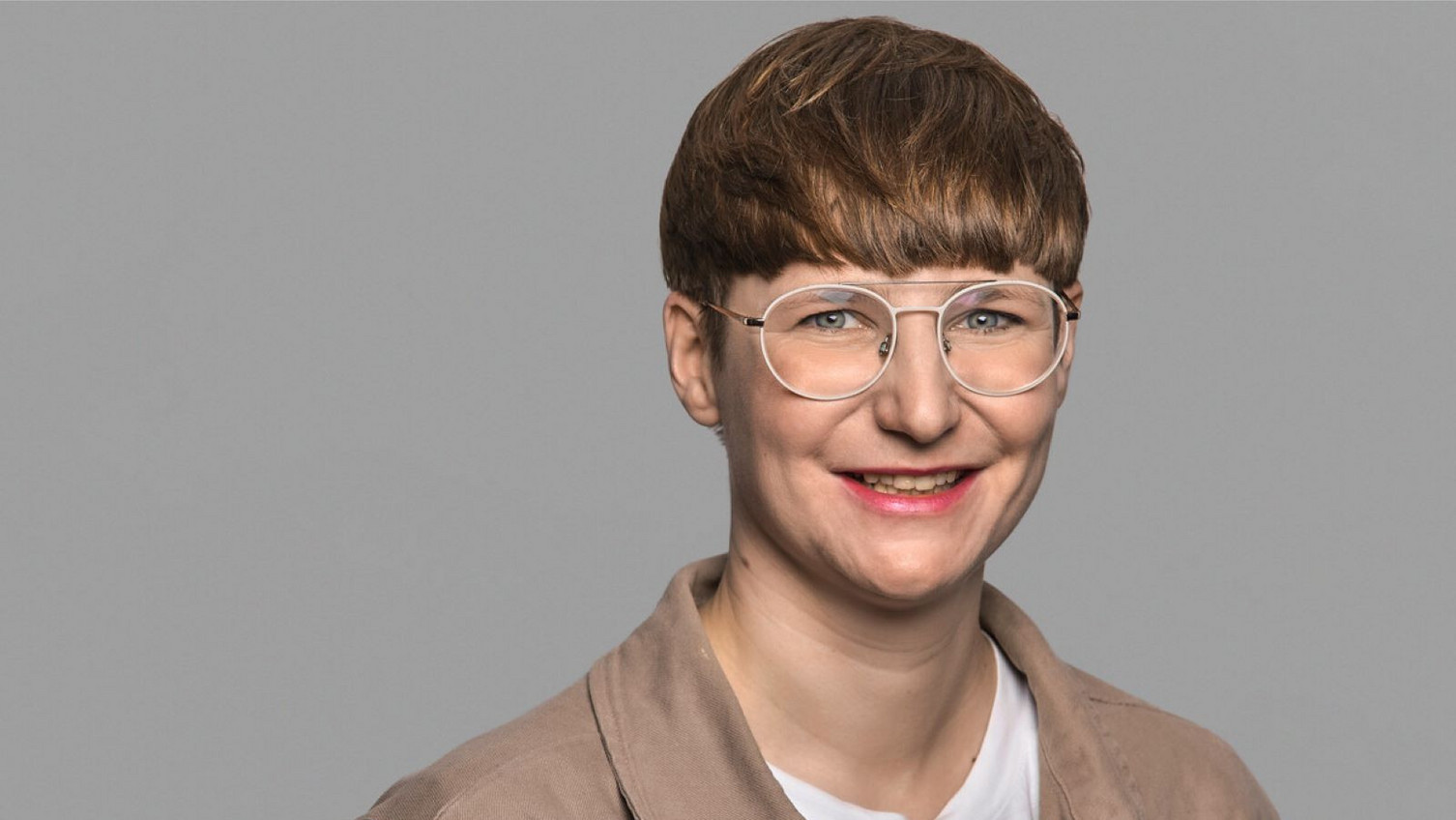 ©Dr.in Liza Mattutat
©Dr.in Liza Mattutat
Dr. Liza Mattutat
Leuphana University of Lüneburg confers the Leuphana Dissertation Award to Dr.in Liza Mattutat for her dissertation entitled "Emanzipation und Gewalt. Feministische Rechtskritik mit Marx, Derrida und Deleuze".
Liza Mattutat completed her doctorate at the School of Culture and Society and her dissertation, which was written at the DFG Research Training Group "Cultures of Critique", makes an extraordinary contribution to new forms of critical practice in cultural studies. Ms Mattutat's excellent work, which is dedicated to the question of what implications arise from a philosophical critique of law for concrete political practice and specifically for (queer) feminist struggles, is equally impressive due to its philosophical weight and its wealth of material. It convinces through its clear structure and the cleverly thought-out pairing of concrete legal problems with critiques of the law.
What made you decide to do a doctorate and why did you choose Leuphana?
At the beginning of my doctorate, theory development seemed to me to be a politically urgent task to which I wanted to contribute in the field of legal criticism. Behind this conviction was Theodor W. Adorno's idea of a “historical breathing space”, in which it is necessary to prepare for the transformation of society by working on concepts and other means of expression. Other (and more personal) reasons were the desire to work on content and concepts and a strong aversion to being monitored at work. I chose Leuphana because the graduate program “Cultures of Critique” promised to make all of this possible: dealing with socio-critical discourses and working conditions that offer a lot of freedom.
What special memories do you associate with your doctorate?
In a Research Training Group, you get to know all academic roles within a short period of time: you give lectures, organise workshops, moderate events, teach (if you want to), publish your own texts and edit texts by other authors. What was special for me was how intensive the relationships with my colleagues became as a result of going through this bootcamp program together.
What challenges did you face during your doctorate and how did you deal with them?
I often refer to the period of my doctorate as my “German Research Foundation-funded life crisis”. Of course, I'm only half-serious about that because I got through it successfully. Nevertheless, my doctorate was a really crisis-ridden time for me. This was mainly due to the insecure working conditions in research, where there is a lot of competitive pressure and it is never clear what is enough and what is good enough. At some point, I decided to stop asking what the institution expected of me, but how I could realise my wishes within the institution.
What advice or tips would you give new doctoral candidates?
See above: Don't ask whether you are good enough for the institution, but whether you can realise your wishes within the institution.
Dr. Laura Medrow-Grahl
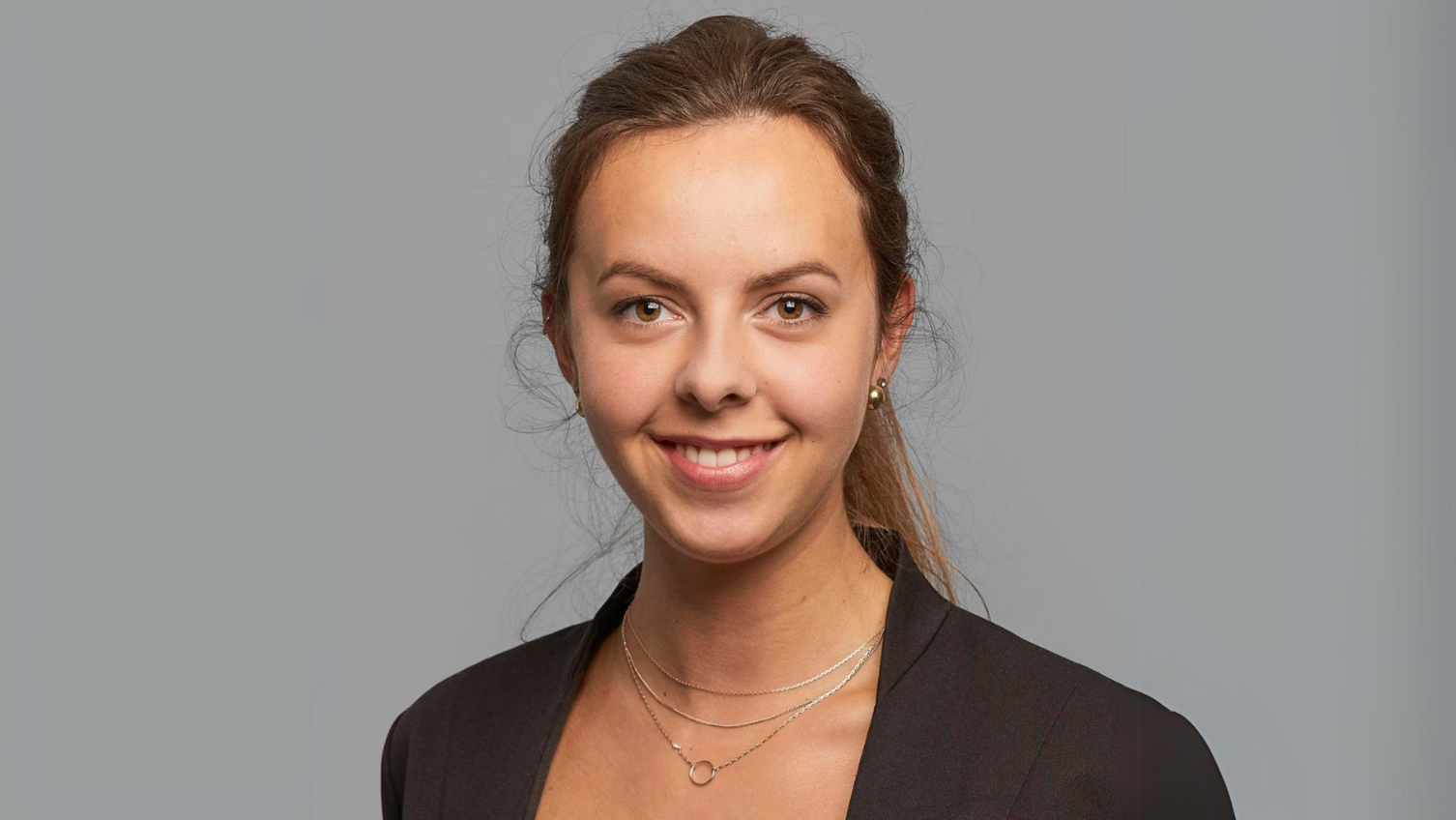 ©Laura Medrow-Grahl
©Laura Medrow-Grahl
Dr. Laura Medrow-Grahl
Leuphana University of Lüneburg confers the Leuphana Dissertation Award to Dr.in Laura Medrow-Grahl for her dissertation entitled "Flow und Imaginative Bildung: Exemplarische Unterrichtsstudien im Kontext kunstvermittelnder Künstlerischer Forschung".
Laura Medrow-Grahl completed her doctorate at the School of Education and her dissertation is an exceptional work on art didactics that deals with cultural studies and pedagogical-psychological theories as well as current practices in contemporary art. The combination of her own innovative teaching practice with the elaborate theoretical reflection and reconstruction testifies to the outstanding quality of the dissertation, with which Ms Medrow-Grahl makes clear the explosive nature of both the specialist discourse and the current social discussion about education and digitality.
What made you decide to do a doctorate and why did you choose Leuphana?
During my Master's degree, I realised more and more that I enjoy academic work and writing long texts. In the outlook of my Master's thesis on the topic of “Fantasy-led exploration of the world” in the field of art education, many other research questions arose that prompted me to decide to do a doctorate on the subject of “Flow and Imagination” at the Faculty of Education. I had already completed my Bachelor's and Master's at Leuphana, appreciated the family environment there and wanted to stay.
What special memories do you associate with your doctorate?
Reading, sketching and writing in all kinds of beautiful places, on vacation in Denmark, in the garden, in cafés, at home, with friends and the freedom to do or not do anything you wanted at any time, simply being self-determined. An absolute highlight was an educational trip to the Education University of Hong Kong with three other Leuphana doctoral students. It was an exciting time with numerous lectures, jet lag and extremely condensed sightseeing.
What challenges did you face during your doctorate and how did you deal with them?
What surprised me was a low level of motivation that arose very early on in the course of the doctorate. I felt overwhelmed by the mass of tasks that came my way. It felt like a boulder that was too big to roll up the hill. It was helpful to talk to my family and friends, talk openly about my fears and divide the boulder into tiny pebbles.
What advice or tips would you give new doctoral candidates?
To perceive the dissertation as an aspect of one's own identity, but not to give it too much space. Sounds difficult, as the dissertation is something you spend a lot of time on day and sometimes night. But you are not just your doctoral courses, you are so much more. Zooming out from time to time, keeping a little more distance from your own work, carving out enough time for hobbies and friends brings more lightness back into your life - and often new inspiration!
Dr. Marie Weiß
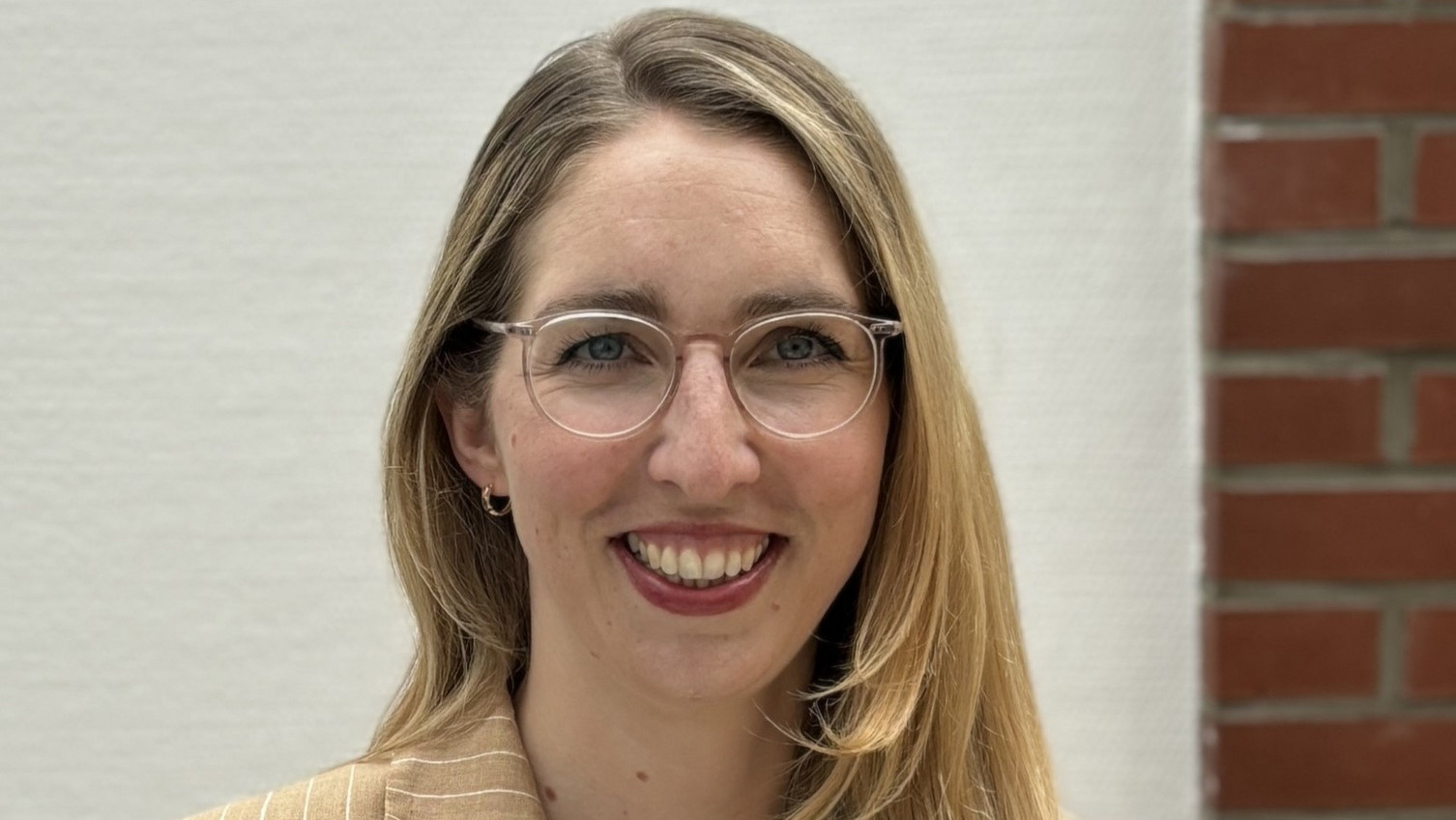 ©Dr.in Marie Weiß
©Dr.in Marie Weiß
Dr. Marie Weiß
Leuphana University of Lüneburg confers the Leuphana Dissertation Award to Dr.in Marie Weiß for her dissertation entitled "How to embed sustainability in the core of higher education institutions: Drivers of, barriers to, & patterns behind the implementation processes of sustainability curricula".
Marie Weiß completed her doctorate at the School of Sustainability. Her dissertation is positioned at the interface of sustainability science and educational science by investigating how sustainability curricula can be implemented and established in universities. With her work, Ms Weiß addresses a highly topical and relevant but previously theoretical discourse in the sustainability sciences and thus breaks new empirical ground. Through extensive empirical diligence, she creates an excellent contribution with a solution-orientated approach geared towards transdisciplinary impact.
What made you decide to do a doctorate and why did you choose Leuphana?
I did my Bachelor's and Master's degree at Leuphana and have already worked for many years as a student assistant and research assistant in a scientific project at Leuphana. Thanks to the close cooperation with the doctoral students, I was able to assess what kind of work I could expect. Since I love scientific work and find it easy, I decided to do my doctorate at Leuphana.
What special memories do you associate with your doctorate?
I did my doctorate in an international project in cooperation with Arizona State University (ASU) with three other doctoral students. The stays at ASU, where we lived together as a team, a trip to the Grand Canyon, but also the friendship and support, especially among the doctoral students, gave me joy and good friends who are still with me. I am also grateful for the very good initial support with both a lot of freedom and feedback.
What challenges did you face during your doctorate and how did you deal with them?
I did my doctorate in English and had not spoken English regularly before. To deal with this challenge, I prepared myself well for presentations and meetings. In addition, we doctoral students supported each other and I was helped in both conceptual and methodological challenges as well as in correcting English texts.
What advice or tips would you give new doctoral candidates?
Understand that the exposé is a draft that will change based on the results - which have to be produced first - especially the paper plan. Don't be afraid to discuss preliminary results with the team, as this always produces the best ideas. Put aside the desire for perfection in every step of the process à la “perfection is the enemy of progress”. And, if you have the choice, look for a first supervisor who is there for you (if necessary, ask around beforehand to see how things are going with current supervisors). In addition, find out about academic systems outside Germany for future plans, as other career paths are possible there, for example a permanent job in the academic mid-level faculty.
Dr. Lars Döpking
 ©Giulia Comito
©Giulia Comito
Dr. Lars Döpking
Leuphana University of Lüneburg confers the Leuphana Dissertation Award to Dr. Lars Döpking for his dissertation entitled "Fiskalisierte Herrschaft. Transformationen des italienischen Steuerstaates, 1946-2018".
Lars Döpking completed his doctorate at the School of Culture and Society. With his dissertation, he presents an extraordinary attempt to conceptualise a "sociology of the tax state" and apply it to a historical case study using the example of Italy between 1946 and 2018. Mr Döpking's work impresses with its triad of theoretical depth, clear programme and empirical richness of detail. Based on an impressive wealth of material, the work engages in very well-founded theoretical debates and thus closes a research gap in sociology.
What made you decide to do a doctorate and why did you choose Leuphana?
I made plans for a doctorate in the first semesters of my Master's degree and finalised my topic after submitting my thesis. I joined Leuphana university because my doctoral supervisor was teaching there - a decision that only proved to be good for me.
What special memories do you associate with your doctorate?
I have great memories of the new freedom to devote myself extensively to reading, getting to know colleagues, teaching and discussing conceptual issues in depth, as well as research stays abroad and presentations at international conferences. A very special experience, however, were the discussions with colleagues who were working on closely related issues: I was able to have endlessly valuable conversations with them.
What challenges did you face during your doctorate and how did you deal with them?
In principle, every doctoral project has to balance the tension between innovation, relevance and stringency. What is new about my approach? Are others also interested in my topic? How can I pursue my research question in a goal-oriented and theoretically convincing way? In my opinion, it is particularly challenging to focus conceptually on the essentials without diminishing innovation and relevance too much. For me, this meant at a certain point ignoring public debt and public spending and instead focusing primarily on taxes in Italy. That was a big and painful step for me, but above all an important one.
What advice or tips would you give new doctoral candidates?
Choose a topic that you are passionate about. Because a dissertation is not a sprint but a marathon, intrinsic motivation is the key factor for its successful completion. Only if you are passionate about a topic will you be able to achieve the necessary performance over a long period of time.
Dr. Sebastian Merkel
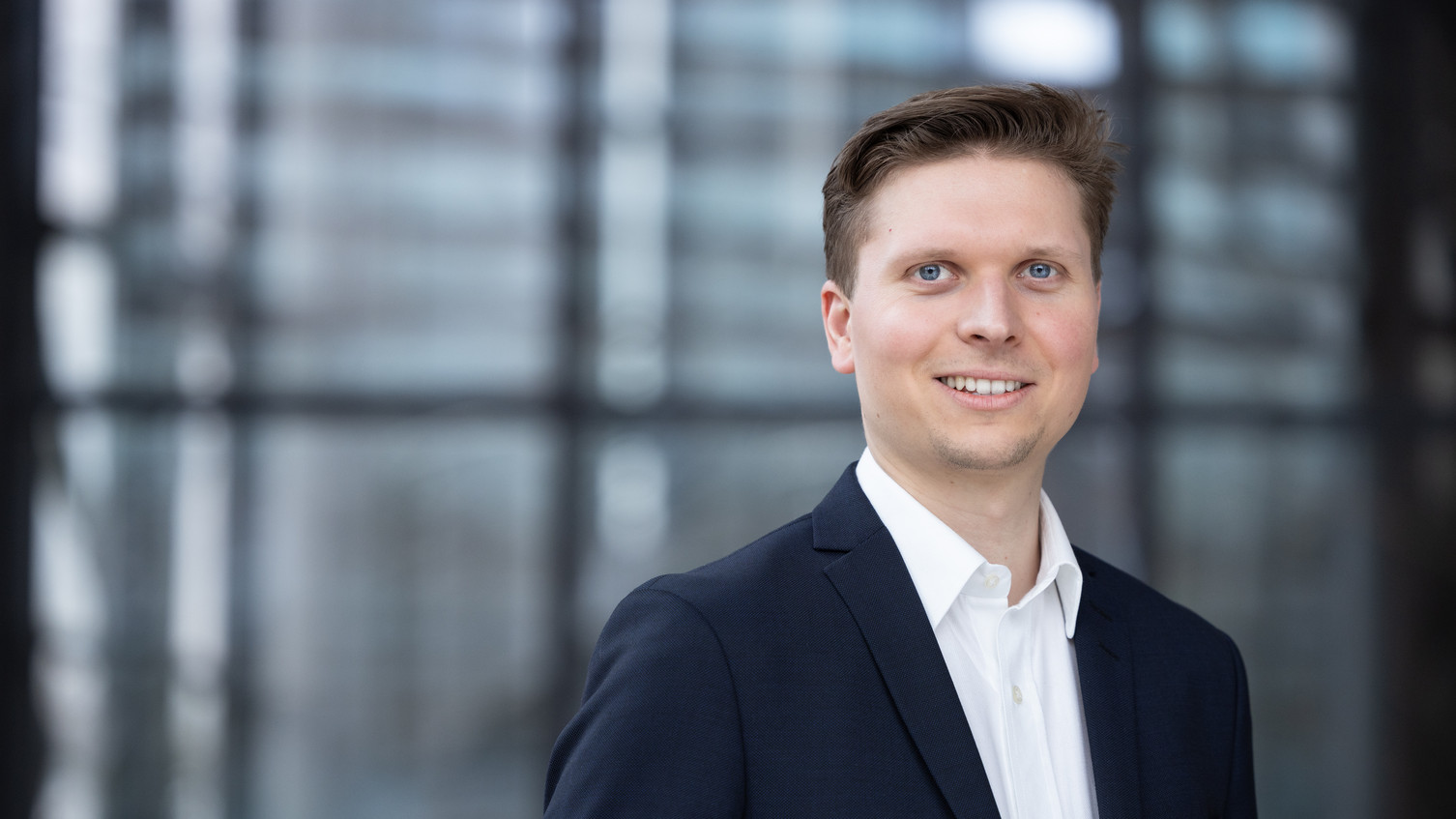 ©Stephanie Trenz
©Stephanie Trenz
Dr. Sebastian Merkel
Leuphana University of Lüneburg confers the Leuphana Dissertation Award to Dr. Sebastian Merkel for his dissertation entitled "Die Kapitalgesellschaft als Verrichtungsgehilfe - Die Haftung der Muttergesellschaft für die konzernangehörige Tochtergesellschaft nach § 831 Abs. 1 BGB".
Sebastian Merkel completed his doctorate at the School of Public Affairs. His dissertation shows possibilities for a standardised classification of group companies as vicarious agents of their parent company within the meaning of § 831 BGB. Methodologically, Mr Merkel follows classical dogmatic jurisprudence, but also includes further comparative legal considerations on common law and impresses with the intellectual precision and clarity of the legal theses presented.
What made you decide to do a doctorate and why did you choose Leuphana?
My decision to do a doctorate was primarily influenced by the realisation during and after my first state examination that I wanted to take another in-depth, academic look at a legal topic. After an initial meeting with my future supervisor Prof Alexander Schall, the decision to do a doctorate at Leuphana University was made very quickly. The interdisciplinary approach and excellent supervision, including in the form of the research colloquia, also played a role.
What special memories do you associate with your doctorate?
I have special memories of my doctoral studies from the discussions with fellow doctoral candidates and supervisors of other research projects in the research colloquia, which I found very enriching. I was also able to hold a few lectures and thus establish contact with the students, which in turn opened up a different perspective on some topics. In terms of content, of course, I also remember the moments when I was able to find a solution to a problem after a lot of back and forth.
What challenges did you face during your doctorate and how did you deal with them?
I found the biggest challenge to be finding a start and a stringent "roadmap" for my project. I knew at the time that I would be working on the selected topic for at least the next two to three years and wanted to develop an idea of what I would be working on over the next few months. Of course, it is not possible to have a fixed outline within the first few weeks of finding a topic and stick to it until the end. However, a rough guideline has helped me. In the final stages of the doctoral project, aspects came up from time to time that I had postponed and for which I then needed a solution. Fortunately, in most cases my assessment that a differentiated solution to the relevant aspect would emerge as the dissertation progressed proved to be correct. In the end, however, the final version was yet another major effort that should not be underestimated.
What advice or tips would you give new doctoral candidates?
Probably the most common piece of advice I've heard is that you have to be enthusiastic about your topic (which I found strange at first glance); but as a result and with a little distance, I can only confirm this. You should also realise that a dissertation is not only a great challenge in terms of content, but also - and in my opinion primarily - in terms of organisation. You should therefore always keep the big picture in mind and not be unsettled by supposedly unsolvable (content-related) challenges. The scientific quintessence will crystallise in the process.
Dr. Isabell Tenner
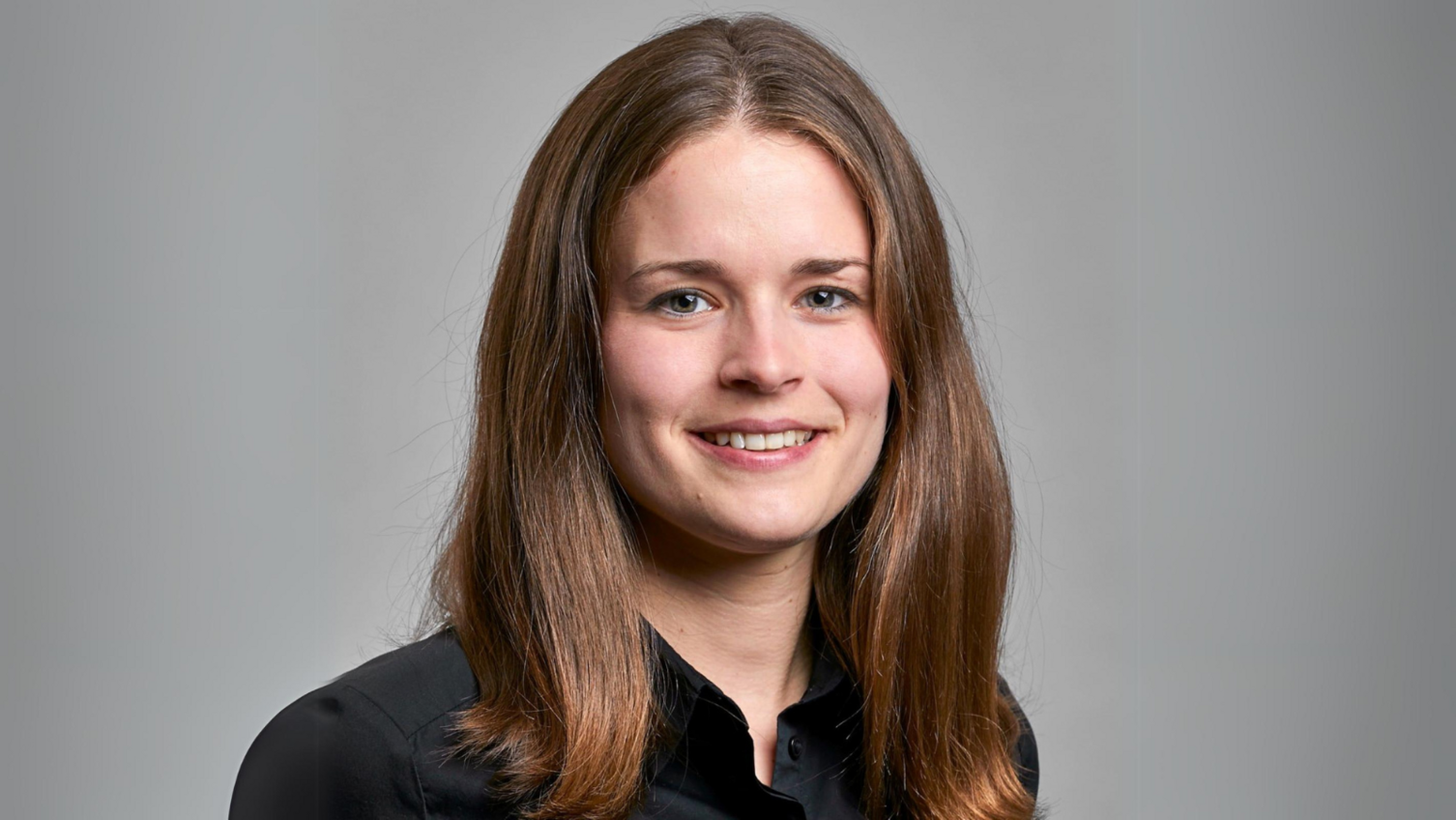 ©Dr.in Isabell Tenner
©Dr.in Isabell Tenner
Dr. Isabell Tenner
Leuphana University of Lüneburg confers the Leuphana Dissertation Award to Dr.in Isabell Tenner for her dissertation entitled "Can the Crowd Save the World? An Empirical Analysis of Investment-Based Crowdfunding and Sustainability".
Isabell Tenner completed her doctorate at the School of Sustainability. Her dissertation is characterised by a visionary approach to the potential contribution of crowdfunding as an innovative form of financing to sustainable development. Her research has already been published to an above-average extent in specialist journals and makes independent, innovative contributions to the further development of the research field. The wide variety of quantitative research methods chosen should also be emphasised, which contributes to her outstanding expertise on crowdfunding and sustainability.
What made you decide to do a doctorate and why did you choose Leuphana?
During my Master's degree, I discovered my enthusiasm for research and scientific work. Since then, I could very well imagine working intensively on a specific topic over a longer period of time. I chose Leuphana university for my doctoral courses because I consider it to be one of the most prestigious German universities in the field of sustainability.
What special memories do you associate with your doctorate?
My doctoral courses were very multifaceted. In addition to my intensive research activities, I appreciated the constructive exchange with other doctoral students from the faculty and prestigious scientists at specialist conferences. Particularly noteworthy was the excellent collaboration with my supervisor, who supported me significantly in my academic development.
What challenges did you face during your doctorate and how did you deal with them?
My doctoral studies overlapped significantly with the coronavirus pandemic, which meant that the exchange with my supervisor and other doctoral students and staff was only possible to a limited extent at times. Nevertheless, we were able to maintain the exchange via digital platforms and find new ways of working together. For example, we cooperated online using the Pomodoro technique during intensive research or writing phases.
What advice or tips would you give new doctoral candidates?
It is important to build up a solid network and to be in continuous close contact with other doctoral students. The challenges are often similar and valuable solutions can be shared.
Dr. Sebastian Thiery
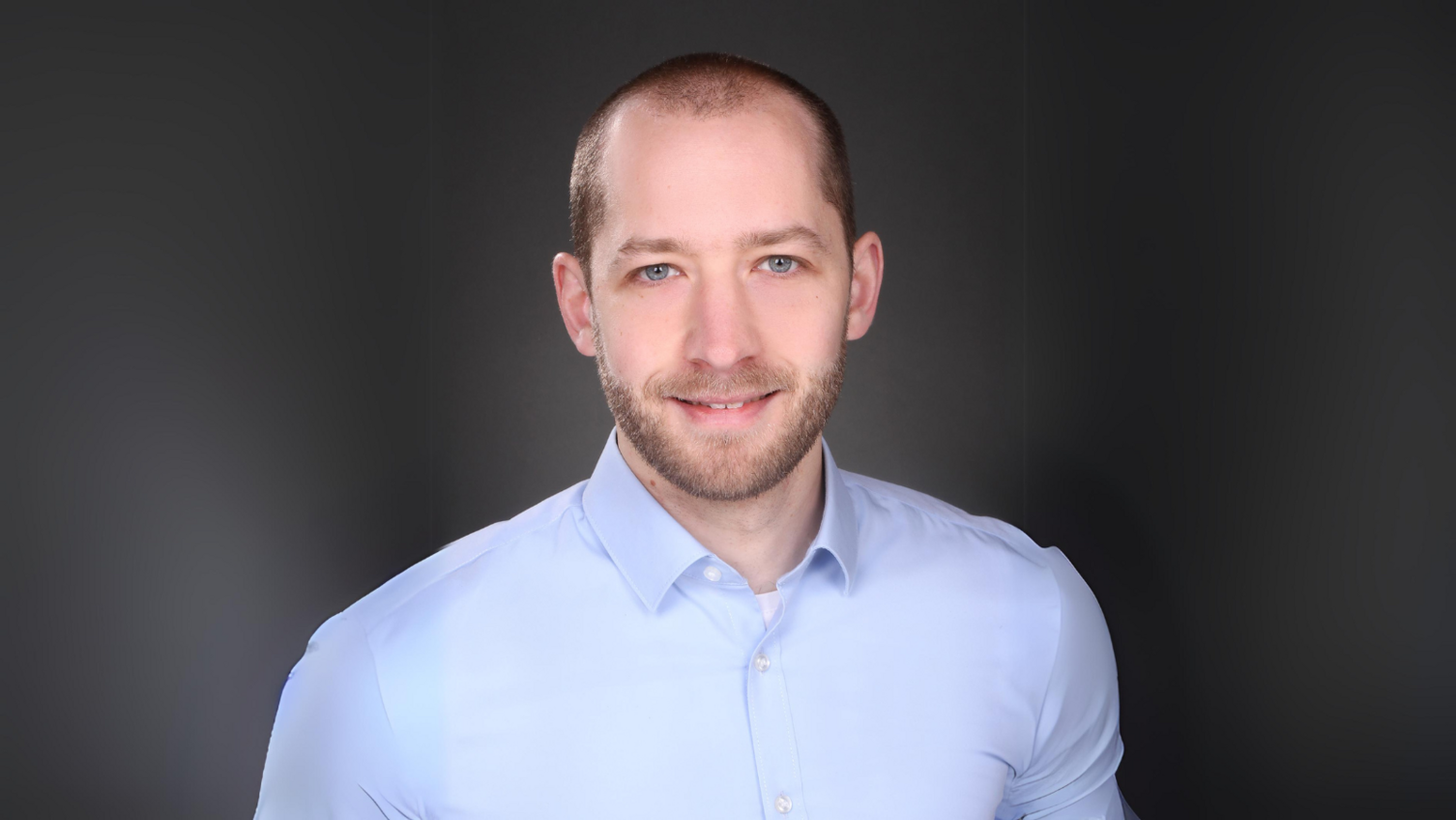 ©Dr. Sebastian Thiery
©Dr. Sebastian Thiery
Dr. Sebastian Thiery
Leuphana University of Lüneburg confers the Leuphana Dissertation Award to Dr. Sebastian Thiery for his dissertation entitled "Grundlagenanalyse der wirkmediengestützten inkrementellen Blechumformung zur konvexen Formgebung".
Sebastian Thiery completed his doctorate at the School of Management and Technology. His dissertation is an outstanding example of innovative research in engineering, in which a novel process variant of incremental sheet forming (ISF) is developed. Through a systematic design of experiments and their evaluation, Mr Thiery has succeeded in making an excellent contribution to the state of research in the field of ISF and in-depth research into its practical applicability. In doing so, Mr Thiery demonstrates a unique understanding of the underlying physical mechanisms.
What made you decide to do a doctorate and why did you choose Leuphana?
Until the end of my studies at TU Dortmund University, I could not have foreseen that I would one day do a doctorate at Leuphana and had originally planned to do a Master's thesis in industry. At the time, I was working as a student assistant at the university and my future supervisor was able to convince me to do a doctorate. Once it was clear that he would become a professor at Leuphana, everything happened very quickly and I started as his first doctoral student.
What special memories do you associate with your doctorate?
My favourite memories are of the time I spent together with my colleagues. During working hours or on private get-togethers, many stories came up that we still like to talk about years later. Some of them are immortalised on my doctoral hat.
What challenges did you face during your doctorate and how did you deal with them?
One of the biggest challenges was to explain the effects observed in the experiments in a technically sound way. There was no clear procedure for my calculations, as students are used to from the sample solutions in textbooks. In the course of my doctorate, I learned that you have to observe carefully and ask the right questions to get the answers you want.
What advice or tips would you give new doctoral candidates?
In my opinion, realistic time management with clear goals helps to make progress and keep an overview despite all the tasks that arise in parallel with the doctorate. If a problem seems unsolvable, it helps to talk to another person at an early stage. This can lead to new solutions. Everyone should also find suitable routines for themselves in everyday life in order to treat themselves with care, especially in this stressful phase of life
Nomination and selection procedure
The nomination of persons who have defended an outstanding dissertation and completed their doctorate summa cum laude during the nomination period to be considered is carried out by the deans' offices of the schools. Nominations are based on the criteria set by the faculty associations.
The best nominations from the deans' offices form the basis for the decision to award the Leuphana Dissertation Awards. In a qualitative selection meeting between the research deans of the schools and the Vice President of the Graduate School, an agreement is reached on the conferring of the awards.
Further links
Contact
Graduate School
Dissertation Awards
Universitätsallee 1, C14
21335 Lüneburg

